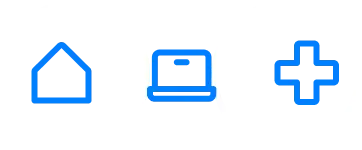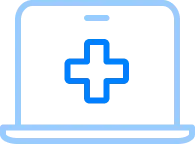Cocaine Addiction Treatment in Massachusetts
Rebuilding Recovery Center in South Easton, Massachusetts, offers structured cocaine addiction treatment programs that combine therapy, medical care, and long-term support. Our team helps you move from crisis toward a more stable, connected life.
Is Cocaine Addictive?
Cocaine is a powerful stimulant that quickly increases dopamine in the brain, creating short bursts of energy, confidence, and euphoria. Over time, repeated use changes how the brain’s reward system works.
People may need more cocaine to feel the same effect, and stopping can bring intense cravings, low mood, and exhaustion. These changes make cocaine highly addictive, even for people who started using it just to have fun or get through stressful periods.
Signs of Cocaine Addiction
- Missing work, school, or family obligations
- Dilated pupils, nosebleeds, sniffing, or a runny nose
- Mood swings, anxiety, paranoia, or agitation
- Risk-taking or impulsive decisions
- Weight loss, low appetite, or sleep changes
- Hiding use or withdrawing from loved ones
- Spending more money than planned
Why Choose Rebuilding Recovery Center
Dual Diagnosis Treatment
We treat co-occurring cocaine use and mental health together, offering therapy, psychiatric support, and coordinated care in one streamlined plan.
Multiple Recovery Pathways
You get a mix of CBT, DBT, trauma care, experiential work, and optional 12-Step support to build a recovery path that fits your needs.
Family Engagement
With your approval, loved ones join family sessions, learn support skills, and receive updates to help create a steadier home environment.
Concierge-Style Support
Our team guides scheduling, logistics, and daily needs with quick responses so treatment feels clear, organized, and manageable.
Relapse Prevention
You learn to spot triggers, manage stress, and build steady coping skills while creating a relapse plan that supports long-term stability.
Treatment Programs for Cocaine Addiction

Day Treatment provides full-day care without overnight stays. You’ll attend group therapy, individual sessions, skill-building activities, and wellness programming. This level of care works well if you need structure and daily support.

Half-Day Treatment offers support within a shorter daily schedule. You’ll join group therapy, individual counseling, and relapse-prevention sessions while staying active at work, school, or home. Many people step down to this level after Day Treatment.

Virtual Treatment lets you receive care from home through a secure, HIPAA-compliant platform. You’ll access individual therapy, groups, and case management focused on cocaine use disorder and co-occurring mental health needs.
If you are using cocaine heavily or mixing substances, you may need detox before outpatient care. Our Detox Referral service connects you with trusted partners who offer 24-hour monitoring and stabilization. When detox ends, we coordinate a smooth return to treatment at Rebuilding Recovery.
Insurance and Cost
We accept most major insurance plans and verify benefits quickly. Massachusetts parity laws protect insurance coverage for behavioral health services, including cocaine addiction treatment.

Not sure if your plan covers treatment? Call us at 781-806-3008 or verify your insurance today.
Success Stories
I love this place the people that work there are the nicest people in the world!
After trying numerous outpatient programs I felt that could not “get it” or get sober.
Highly Recommend !! Rebuilding’s Evening Outpatient Intensive Program provided me with the best way to begin my Sobriety.
How to Begin Cocaine Addiction Treatment
Starting cocaine addiction treatment can feel overwhelming, but we break the process down into clear, manageable steps.
Call for a free consultation.
We’ll talk through your goals and verify your insurance.
Complete an assessment.
You’ll attend an in-person or virtual meeting to discuss your needs.
Start tailored treatment.
With our guidance, you’ll go through proven and wellness therapies.
Step down as you progress.
Our team can help you transition to lower levels of care as needed.

Cocaine addiction can strain work, relationships, and daily routines, but recovery becomes possible with a clear plan and steady support. Rebuilding Recovery Center offers flexible programs that fit your life and provide the guidance you need to move forward with confidence.
FAQs
What is crack cocaine?
Crack cocaine is a smokable form of cocaine that produces a faster, more intense effect that wears off quickly. This rapid cycle often increases cravings and raises the risk of dependence.
How long does cocaine stay in your system?
Cocaine usually clears the bloodstream within one to two days, but metabolites may stay in urine for several days. Detection varies by use patterns and overall health.
What helps with cocaine withdrawal?
Withdrawal care focuses on rest, nutrition, hydration, and support for low mood or fatigue. Therapy and clinical guidance help you manage cravings and stay safe.
How do I know which level of care I need for cocaine addiction?
During your assessment, we look at your current use, withdrawal history, mental health, safety concerns, and daily routine. Based on this, we recommend Day Treatment, Half-Day Treatment, Virtual Treatment, or a detox referral.
Can I keep working or going to school while in treatment?
Yes, many people do. Half-Day Treatment and Virtual Treatment are designed to support recovery while you continue with work, school, or caregiving. Our team can help you plan conversations with employers or professors if needed.
What if I have relapsed after past treatment for cocaine use?
Relapse is common and not a sign of failure. We review what happened, adjust your plan, and focus on new skills and supports so you can move forward with more tools.
Will my family be involved in my cocaine addiction treatment?
If you choose, family members or trusted supporters can join family sessions, learn about cocaine use disorder, and practice communication and boundary-setting skills.
Do I have to live in Massachusetts to attend cocaine addiction treatment at Rebuilding Recovery?
Many clients live in Massachusetts or nearby states, and some travel from farther away. We can help you decide if in-person or virtual care fits your needs.
How long does outpatient cocaine addiction treatment usually last?
Length of stay varies. Many people join structured care for several weeks to a few months, then step down as needed. We adjust the timeline based on your goals and progress.
Is my information kept confidential?
Yes. Your care follows strict privacy laws. We share information only with your written consent or when required for safety.











